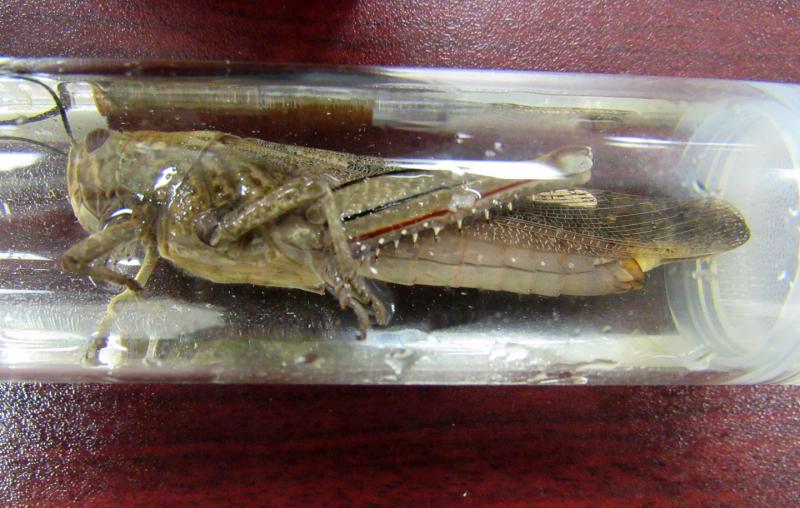BALTIMORE – In biblical references, residents feared the destructive arrival of the locust; however, U.S. Customs and Border Protection (CBP) agriculture specialists were undeterred when they encountered an Egyptian tree locust recently in the Port of Baltimore.
CBP captured a locust specimen while inspecting a shipment of Italian wine November 15 and immediately ordered the entire wine shipment back into the shipping container for safeguarding.

tree locust
CBP agriculture specialists submitted the specimen to the U.S. Department of Agriculture (USDA) entomologist for identification. The entomologist determined that the specimen was Anacridium aegyptium, commonly known as the Egyptian tree locust. The Egyptian tree locust is a voracious leaf feeder and a pest to grapevines, citrus and other fruit trees, and vegetable plants. It is commonly found in Europe.
The Egyptian tree locust is considered an invasive species not known to occur in the United States.
“This interception demonstrates the criticality of Customs and Border Protection’s agriculture protection mission at our sea, air and land ports of entry,” said Casey Durst, CBP Director of Field Operations in Baltimore. “CBP agriculture specialists work hard every day to intercept invasive insects and federal noxious weeds, and to prevent the introduction of foreign plant and animal diseases that could seriously harm U.S. livestock industries.”
CBP agriculture specialists issued an emergency action notification and the importer agreed to export the container and its contents.
CBP Agriculture Specialists have extensive training and experience in the biological sciences and agricultural inspection. On a typical day nationally, they inspect over 1 million people as well as air and sea cargo imported to the United States and intercept 352 agriculture pests and 4,638 prohibited meat, plant materials or animal products. Learn what CBP accomplishes by visiting Typical CBP Day in 2017.
Learn more about CBP’s agriculture protection mission.


